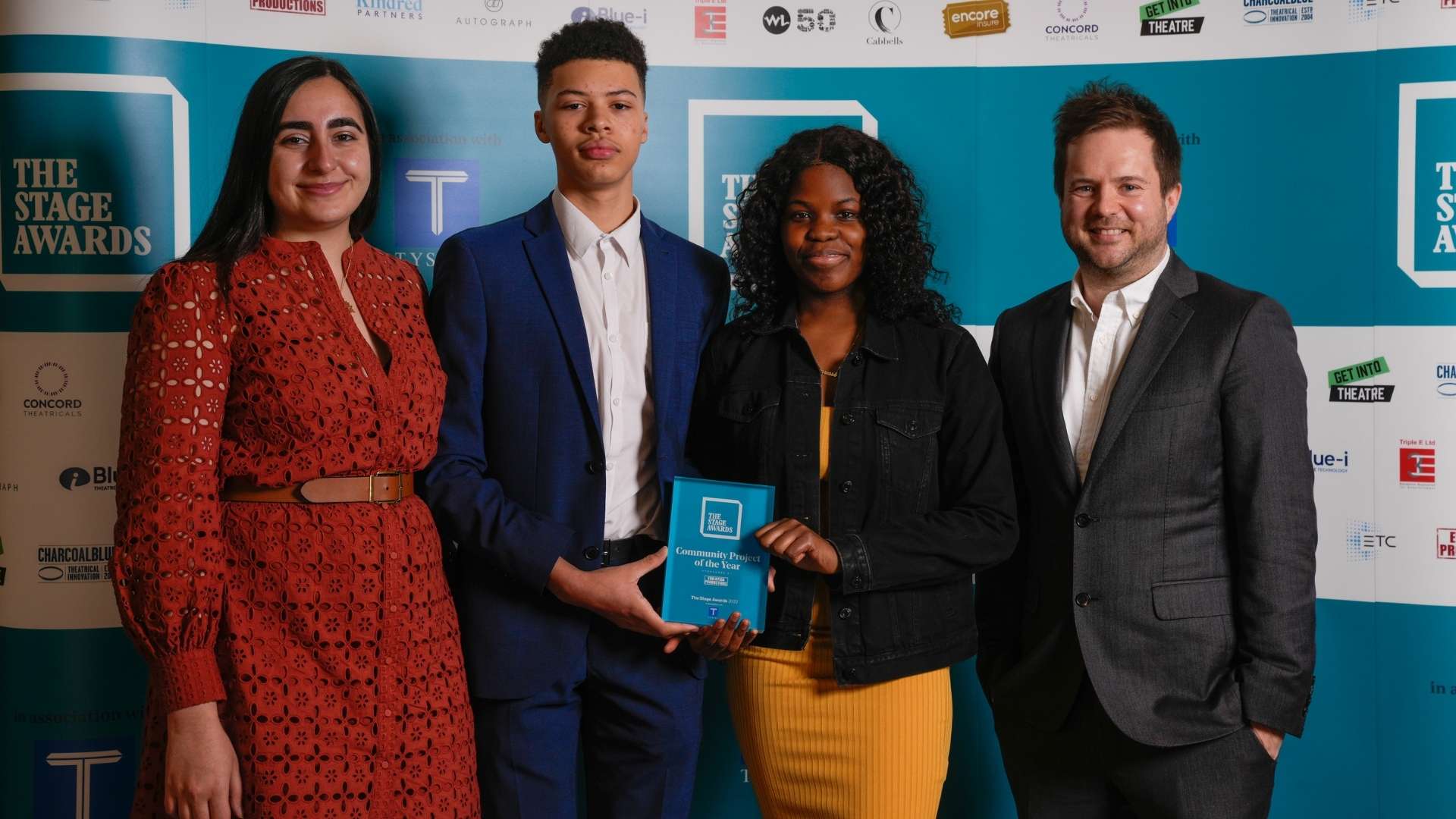Theatre Green Book UK, the grassroots initiative that sets common standards for sustainable theatre across all areas of theatre practice and operation, has published a second volume and a range of tools aimed at supporting the UK theatre sector to reach net zero by 2030. Also announced today, the Theatre Green Book UK has secured funding to engage a Director and support the spread of the Theatre Green Book across the UK.
Supported by an updated website, the UK Theatre Green Book’s second edition brings all three volumes of the original book together into one. It sets out clearly and graphically how to plan the transition to net zero across all areas – productions, operations and buildings – through the logical steps of Basic, Intermediate and Advanced. An initial step, Preliminary has been added that prompts theatre companies to commit to transition and organise themselves for the journey. Using that ladder, from Preliminary to Advanced, theatres can self-certify each rung of their transition towards net zero. This clear structure enables theatres to commit to net zero by 2030, knowing exactly what needs to be done to achieve that target.
The updated web site includes a new registration feature giving access to community forums, supporters’ pages, upcoming events and the opportunity to become more involved.
Theatre Green Book Edition Two has been developed with help from across the sector, most notably from a dedicated trialling group: Chichester Festival Theatre, English National Ballet, Headlong, the Lowry, The National Theatre, National Theatre of Scotland, Northern Stage, Opera North, Royal Opera House, the RSC, SAIL, SHIFT, Wales Millennium Centre, and the Young Vic, organisations who are already using Theatre Green Book standards, and will reach at least Basic standard by the end of 2024.
There is an easy-to-use Excel support tool for each area of the Green Book: a Production Calculator to analyse shows; an Operations Tracker to manage every aspect of catering, printing, travel, waste, building management and procurement; and a Building Survey Tool to start making theatre buildings fit-for-purpose in the climate emergency. Thanks to the expertise of Creative Carbon Scotland and funding from the Deutsche Theatertechnische Gesellschaft (DTHG), for the first time theatre organisations will be able to quickly and accurately calculate their main carbon impacts: the heavy new materials that go into sets, building energy use, travel and transport.
Support from The Foyle Foundation, Frederick Mulder Foundation, Steel Charitable Trust, Unusual Rigging and others, will fund the appointment of a Director for 12 months, a programme of launches and training events across the UK and a planned International Theatre Green Book conference in Spring 2025. Applications are now open for the Director role with a closing deadline of midday on 1 July. Details of the role and training and events can be found on www.theatregreenbook.com
The Theatre Green Book’s second edition, developed by Renew Culture and Buro Happold, will be matched by new editions in Germany, Ireland, the Netherlands, Denmark, Sweden, Norway, Spain, Australia, Taiwan and Sharjah, along with a special edition for the European Theatre Convention, to be launched at the Avignon Festival on 1 July.
Alex Beard, Chief Executive, Royal Opera House says, The climate crisis is the number one issue facing humanity today. The Theatre Green Book is inspiring, enabling and equipping our world-leading theatre sector to play its part in the path to net zero. The Royal Ballet and Opera is deeply proud to be on this journey with colleagues from right across the UK, alongside our many partners throughout Europe.
Daniel Evans and Tamara Harvey, Co-Artistic Directors, Royal Shakespeare Company say, The Theatre Green Book, and its practical toolkit, has become central to our way of working at the RSC. It encourages us to think and act differently – and urgently – as we play our part in finding solutions to the climate emergency.
Rufus Norris, Director and Co-Chief Executive, The National Theatre says, At the National Theatre we recognise how vital it is work sustainably across all aspects of our theatre production and operations, particularly as we aim to reach Net Zero by 2030. The Theatre Green Book has been a vital part of our evolution, and the second edition builds on the profound impact of the creation of this guide by providing helpful tools and guidance to ensure that we, and others across the sector, reach these goals. By introducing new ways of thinking, inviting innovation and collaboration, we have reached the new baseline standard. Alongside other initiatives such as the National Theatre’s Green Store, a new set, prop and costume store to open this year, and a commitment from freelancers and staff alike, our initiatives continue to gain in momentum during this time of climate crisis.
Jackie Wylie, Artistic Director/CEO of National Theatre of Scotland says, National Theatre of Scotland is committed to reducing its carbon footprint and making theatre in as an environmentally sustainable way as possible. We would not have been able to maintain this journey of carbon reduction across our programme if it were not for the clarity and practical guidance of the Theatre Green Book. We have previously achieved Immediate Standard for the majority of productions which we will now try and emulate for our buildings and operations too. This new version of the Theatre Green Book will hopefully inspire the theatre industry across UK and beyond to ensure that theatre-makers are playing their part in tackling climate change.
Lisa Burger and Paddy Dillon, Co-Directors, Renew Culture, said, This is a huge moment for sustainability in our sector. In three years, we’ve proved that change is real and possible. The second edition builds on that. We believe we have momentum for change across UK theatre.
Theatre Green Book Edition 2 is now available without charge online at theatregreenbook.com. There will be a series of events happening over the coming months to share the new edition and tools across the sector.
















